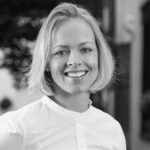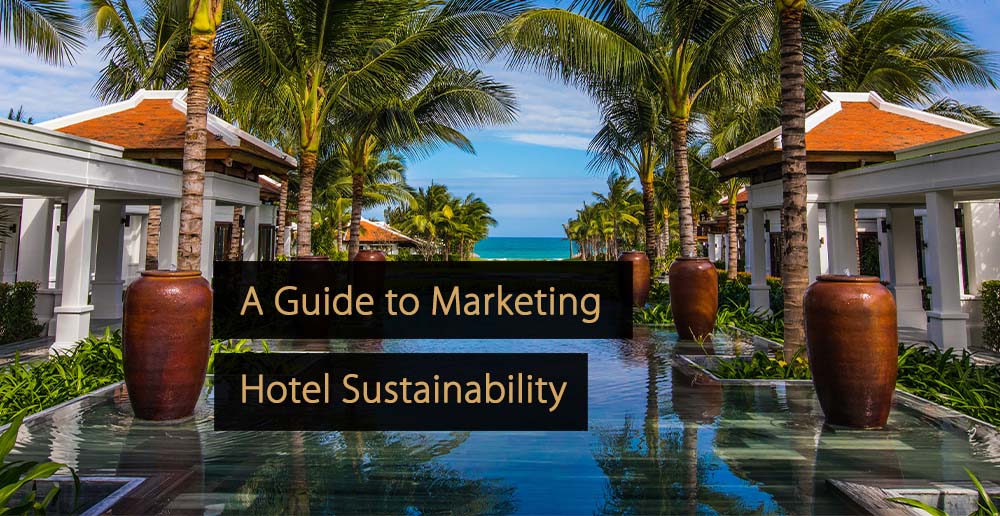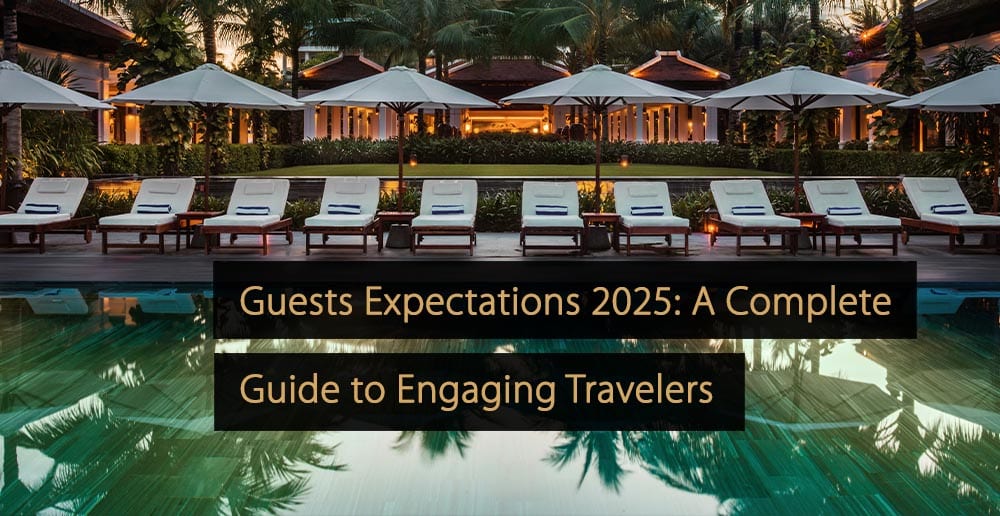Question for Our Hotel Marketing Expert Panel
How do you think market segmentation will change for hotels in 2022? What do you expect the top trends will be? (Question proposed by Luminita Mardale)
Industry Expert Panel
Our Industry Expert Panel exists out of professionals within the hospitality & travel Industry. They have comprehensive and detailed knowledge, experience in practice or management and are forward-thinking. They are answering questions about the state of the industry. They share their insights on topics like revenue management, marketing, operations, technology and discuss the latest trends.
Our Marketing Expert Panel
- Adele Gutman – Culture and Guest Experience Expert, Hospitality Reputation Marketing Podcast
- Luminita Mardale – Director Of Marketing And Business Development, Vienna House
- Max Starkov – Adjunct Professor Hospitality Technology, New York University
- Tim Kolman – Commercial Strategy Expert, three&six
- Jolien Alferink – Hotel Marketing Consultant, Orange Hotel Marketing
- Linda Bekoe – CEO, APLBC
- Reshan Jayamanne – Digital Marketing & Sales Strategist, Bnb Optimized
- Jacopo Focaroli – CEO & Founder, The Host
- Nicole Sideris – Founder & Prinicipal Consultant, X Hospitality
- Susanne Williams – Performance and Revenue Director, Journey Hospitality
- Grazia Dell’Aquila – Hospitality Consultant, IAMGRAZIA
- Mattias Dybing – Founder and Director, Nuvho | Hotel Services & Management Company
- Tamie Matthews – Revenue, Sales & Marketing Consultant, RevenYou
- Moriya Rockman – Chief of Marketing, Smiling House Luxury Global
- Ask Our Panel a Question
- Join Our Expert Panel
“I’m not sure how or if market segmentation will change, but I do see that the way we deploy our teams has already changed and may continue to evolve. Allowing someone to take a deeper penetration into each account, developing strong relationships for all their needs may be more efficient for hotels as well as preferable for our customers, so that our clients have fewer points of contact.
I have heard from hotel professionals that during COVID, lean teams meant salespeople had to adapt. They added new skills and refreshed their past skills that were not used in a while because they were highly segmented. Now they are flexing their sales muscles and expanding their talents and their confidence in attracting business from a wide variety of sources. Flexibility and cross-training are empowering team members and their hotels.”
“At the moment, all segments are still uncertain for travel because the 4th wave of the Covid 19 pandemic has affected many countries and new travel restrictions have been imposed. Staycations will be extremely popular also in 2022 and we will see a lot of family reunion holidays. Also, we expect a boom from international group travel, as people are willing to travel and explore new places.
The business segment still works from home, but over 80% of them want to return to the office and over 60% to start travelling again. The business segment will depend on the number of people vaccinated and the restrictions between countries on COVID 19. Depending on this, the travel part will be reopened. Companies will choose only a few hotels to collaborate with and the prevention measures that are applied by them will be very important.”
“Leisure and unmanaged business travel from small/midsize companies, which exhibits a behaviour similar to leisure travel, will rule 2022. Managed business travel, corporate groups and SMERFs will be at 60%-70% of 2019 levels at best.
In my view, developing a robust Feeder Market Channel Strategy or 2022 Vs the usual market segmentation channel strategy makes more sense for any property. Focus on your short-haul feeder-markets and especially on your drive-in feeder markets. Why? People will continue to travel, especially on short-haul and shorter stay trips.
- Short-haul feeder markets can save the day! Analyze carefully all short-haul feeder markets and identify the ones that matter. Are there weekend specials, family, museum, special occasion packages, “Gas Refund” promotions on the website, F&B packages, etc. targeting the drive-in feeder markets? Launch SEM, GDN, GHA, CRM marketing campaigns, multi-channel campaigns, etc., geo-targeting the important to the property drive-in markets.
- Long-haul feeder markets: Are there any long-haul feeder markets that are not affected by travel bans, flight cancellations, etc. and are still salvageable? Are there any website messaging and promotions that need to be developed for these markets? Launch a few paid search digital marketing campaigns, geo-targeting these few long-haul feeder markets that can still generate business.”
“The sky is the limit and data is king! Integrated data from connected systems like the PMS, CRM, RMS, etc., will allow for robust market segmentation and a more personalized guest journey. The more complex your segmentation, the better your targeted marketing will be. Midweek corporate travel will still struggle, but the “bleisure” trend of a blended business and leisure guest will continue strong.
Do you know what leisure guests will tend to come in early or stay a few days longer from drive markets within 250 miles? Do you know those guests who tend to travel the month of their birthday, stay 3 or more nights and spend a lot of money on F&B? Marketers that have the right data and know-how to use it (alongside revenue management) will succeed in 2022!”
“It remains challenging to predict trends for 2022. Even though travel restrictions have eased, local measures will still impact demand and can change suddenly. Corporate travel has started to come back in certain markets, which is encouraging to see. For instance, the recent news of US welcoming international travel again will have a big impact on the recovery of both leisure and business travel.
We think the current trends of domestic and short-haul travel will continue for another while, with both leisure and corporate travellers choosing only safe destinations to travel to.”
“I think that there will be a growth in bookings from travel agents, so hotels and apartments need to think about how they offer value to these consultants since they have so much choice of who to book.
Secondly, leisure guests have more expectations and will likely only book with the hotel or properties if the experience is rate. We, as hoteliers, need to stop the cookie-cutter approach and start personalisation.”
“Dealing in the luxury sector specifically, we can see that travellers are looking to enjoy moments with larger groups of people, in seclusion and on the road less travelled. Market segmentation differences go beyond just a room. People want to get away from the crowd and totally ‘disconnect’ from everything. Some significant changes we have seen in market segmentation are around the guests’ psychology. They have never been more exploratory, risk-averse, often basing their experience on how ‘safe’ a location is due to the current circumstances we all find ourselves in.
We’ve also seen a new wave of nomads travelling and working remotely, with the fast adoption of people working from home (or anywhere else in the world). They tend to want to stay for longer periods of time, often seeking a discount of sorts for a month-to-month booking opportunity. This is something to consider for hotels during both low and high season to bring about a greater predictability of revenue from the ‘post pandemic’ world.”
“The travel industry has been constantly changing rapidly and concepts like “bleisure”, staycation, long-stay rentals have been around even before Covid. The sentiment though is that they are predominant now more than ever, therefore, most of the categories should be studied and reconsidered, see the “work-from-anywhere” crowd for example. We can ask ourselves then “Do we know them? Can we track them? And, how?” and apply the “data is the king” approach along with a well-trained staff committed to face-to-face interaction.
The better we track, the more we can slim down the lists, create new ones, see confirmations of old trends, fine-tune the forecast. Demand is so vast and could come from anywhere, it’s up to us to pragmatically analyze it (with no random preconceptions) in order to tweak our strategies accordingly.”
“In 2020, properties in the major markets suffered because of their reliance on corporate, group and international travellers, and all segments that essentially shut down. Conversely, hotels operating in the smaller markets benefited from the perception of a safer, healthier destination with less of a probability of becoming infected with COVID-19. in 2022, I anticipate a stronger movement in travel from Q2/Q3.
I can already see hesitancy around corporate travel both internationally and domestically, whilst companies are confirming insurances and their obligations towards travel. 2022 demand will be initially driven by the transient consumer and the domestic leisure traveller. Business travel, group and conferencing is needed now more than ever; it is not likely to return to its 2019 peak but will flow through Q2 in 2022.”
“Will we see a change in hotel market segments? We will certainly see a change in online behaviour and all the opportunities that come with that. Set the priority to deep dive into your data. Reservations data can be pulled and analysed now for 2022/23 budgets.
How much did your segments shift and grow? What volume of enquiries did you have and what business did you turn away and which segments displaced potential high value sales? Where did the rate grow and did days of the week perform as expected?
As an example, in 2020 one Journey hotel always buoyant with wedding trade through the summer months had to quickly pivot and attract a very different audience. In a location that demanded travelling further to a remote corner of the UK. This resulted in 2020 being a more profitable year and that change in segmentation has driven repeat business throughout 2021.
The reasons guests stay will not change. However, it is important to identify emerging markets for your hotel. Domestic leisure has been the golden goose in 2020 and as international travel continues to rebound. Is there an opportunity there for your property? Consider your approach, test the market, engage representation and start to think about the mid to long term opportunities.
We expect to see more fluidity in guest bookings. Less tumultuous changes to guest behaviour and most importantly, how the third party channels will erode direct bookings. What innovations will the OTA’s introduce to challenge your direct business? Stay ahead of the game with a well-considered marketing plan.
Ultimately if you see an opportunity in an emerging market, craft a plan, define your goals and go for it. For us, our 2022 ambitions sit around driving offline business online, saving resources and potential lost bookings and continuing to focus on leisure, both domestic and international.”
“Since market segmentation helps to determine the reason behind guests stay (for business or for leisure), we will definitely need to understand what will motivate future clients when they will book a new trip. Once we know the reason behind their stays, then we will be able to define the prices based on market segments. The reason can depend on physiological needs, a sense of self-motivation, to be inspired and to feel some travel freedom after 2 years of the pandemic.
One market segment is related to the physiological segmentation made by the characteristics of the personality of each traveller, their lifestyle, and social class. Also, geographic segmentation is another segment to take into consideration that will influence the travel requirements based on the cultures of some areas and countries. Demographic segmentation can also be part of the market segmentation because it is based on age and gender. If we focus on the guest needs, based on personality, geographic and demographic, we can work on the right market and the right trends, bringing success to our hotels.
Based on the new changes and market analysis, the new trends will be:
- Staycations or weekend trips in luxury hotels where guests are sure to receive a high level of service and safety protocols.
- Digitalized guest experiences & Contactless Tech.
- Personalization: since guests will expect to be recognized and treated as individuals.
- Experience economy: since guests will prefer to spend their money wisely and make a positive impact on the world.
- Focus on the Millennials, who will represent 50% of the market, and are keen to stay in luxury brands with high expectations for fast, personalized and digital services.
- Sustainability: since travellers are becoming increasingly sensitive to environmental and social issues, in particular the new generation.”
“The type of travellers who will stay in hotels will depend on a hotel’s location and border / health restrictions for that location. It is difficult to predict given that the jab is not fully preventative of existing and new Covid variants. Should things settle and the world reopens whilst learning to live with Covid, I would expect a stronger return of corporate and events segments, with international travel also influencing the trends positively for inbound FIT and groups. As such, domestic leisure travel % contribution should reduce in comparison to current levels.”
“I feel that market segmentation will change drastically. We will have to get back to the basics of developing market segments with customer personas, understanding our segments, creating new segments and then targeting each segment individually. For too long, market segments were that thing we looked at during budget season and then forgot about. We are going to have to pay a lot more attention to them as we attempt to rebuild our businesses as our source of business is changing. Corporate may not come back as quickly as we would like or it will come back differently. Leisure will change and we will have to rely on it to fill gaps and not corporate.
2022 and the easing of restrictions will lead to more changes in how we operate. Some hotels may never reopen and others have renovated. Some will change their function moving from short to long stay or 4 star to budget. Monitoring our competitors and our market segments will be key to success.”
“As Covid 19 is still around, strong trends such as Staycation and Workation will keep dominating the hospitality world. Staycation is an opportunity for everyone busy with hospitality to reach out locally to travellers who are within driving distance. As Covid restrictions vary from one country to another, many guests are discovering their own country. This is an opportunity to speak in your own language and welcome new direct guests. The workation trend created by the dramatic changes in the way people work, made it possible for many to travel for a longer period and combine work while discovering a new destination and culture.
In order for you to welcome these workation guests, you need to make them feel like they’re at home – meaning that amenities such as a fully equipped kitchen, office space, high-speed internet, etc., are a must. Representing the vacation rental industry in this panel, I can assure that many property managers did the necessary adaptations for these clients. Hoteliers should pay attention to this trend and dedicate some units suitable for these guests.
Lastly, the number of luxury travellers will keep on growing. The guests who could afford it, never stopped travelling, even when it seemed impossible. Now, more than ever, high-end individuals will keep on choosing private properties or separate hotel units, as privacy, and as many private amenities as possible, are required. Smiling House Luxury is specifically handling the requests of both individuals and professionals looking for these types of luxury accommodation. Demand grew tremendously since Covid and with the forecast that it’s here to stay.”
Ask a Question & Join Our Expert Panel
Would you like a question to be answered by our Industry Expert Panel? Or would you like to join our community of experts and share your experience, insights, and knowledge with fellow industry professionals? Via the buttons below you can submit a question or submit a request to become part of our expert panel.
More Tips to Grow Your Business
Revfine.com is the leading knowledge platform for the hospitality and travel industry. Professionals use our insights, strategies, and actionable tips to get inspired, optimize revenue, innovate processes, and improve customer experience.Explore expert advice on management, marketing, revenue management, operations, software, and technology in our dedicated Hotel, Hospitality, and Travel & Tourism categories.





















Leave A Comment